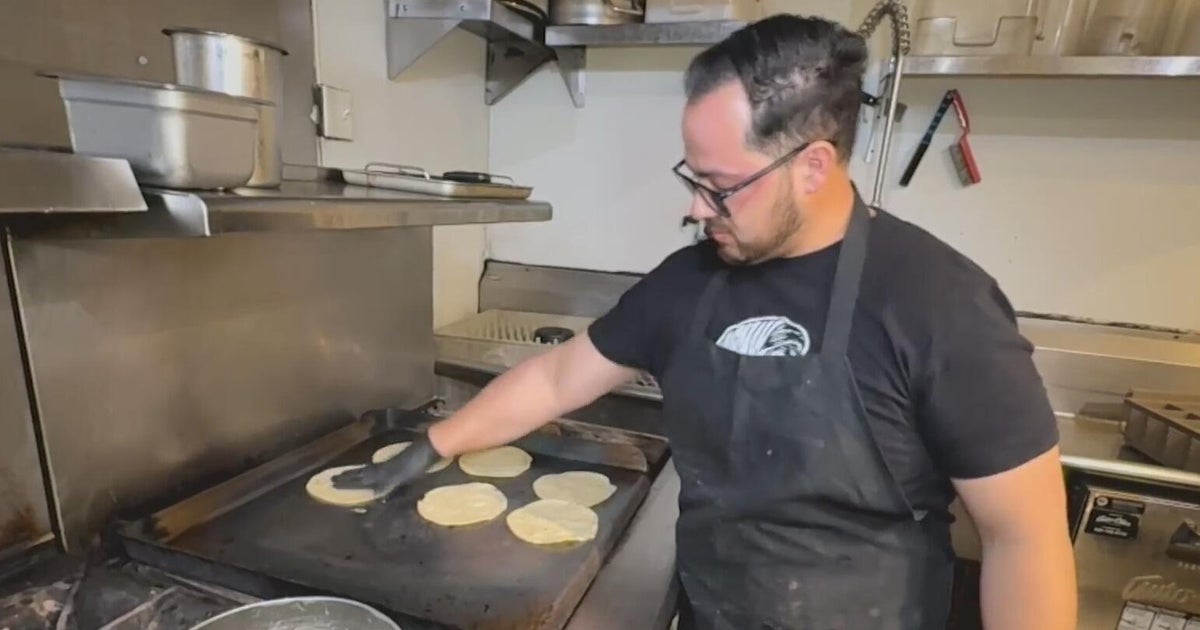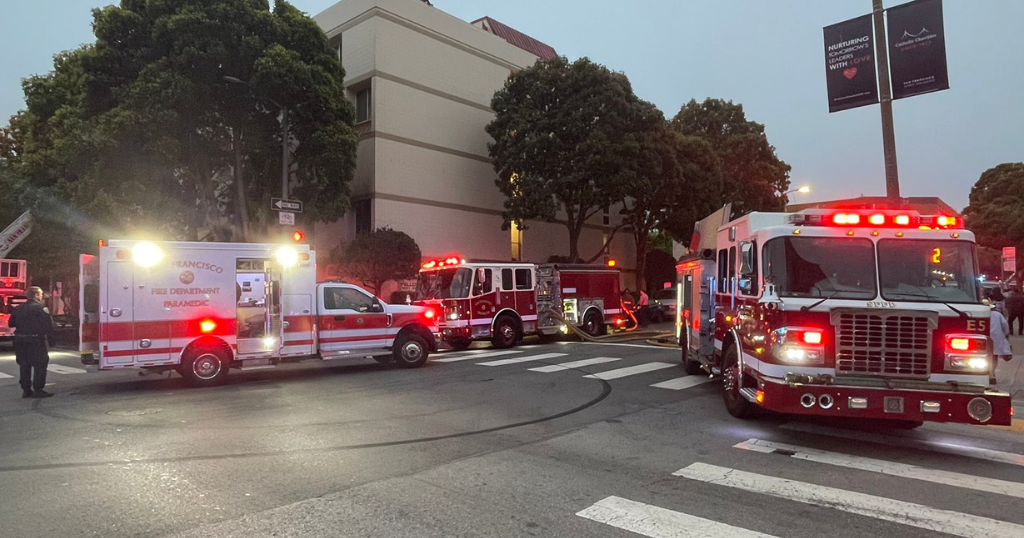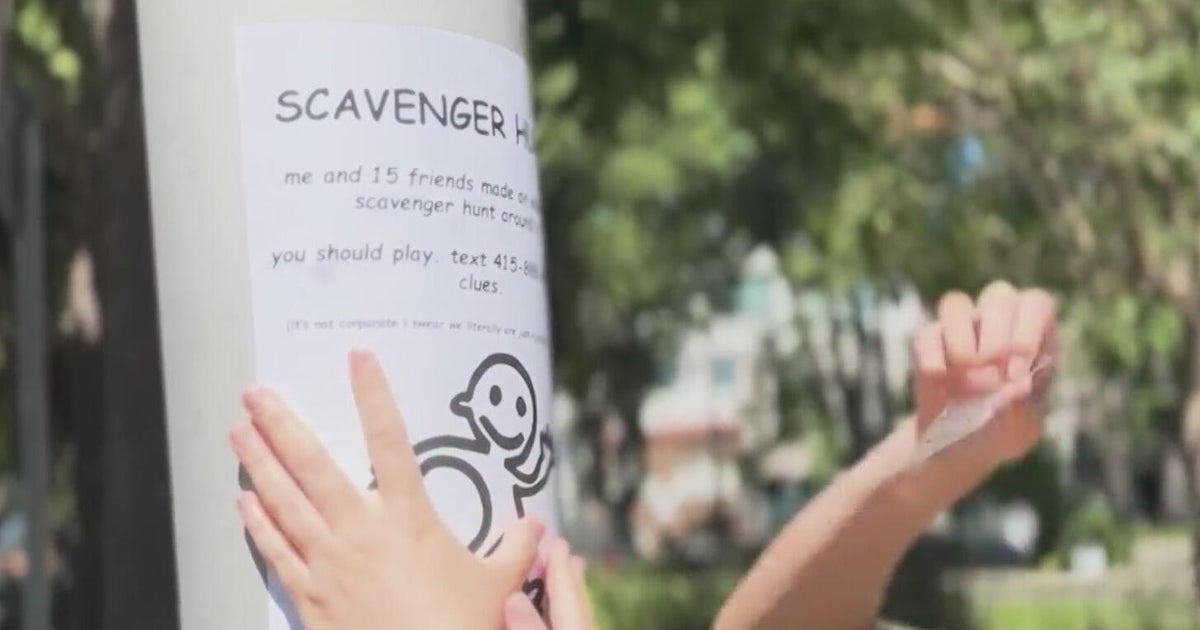Activists Look Back At Anniversary Of Historic San Francisco ACT UP Protests
SAN FRANCISCO (KPIX 5) -- For San Francisco's LBGTQ community and their family, friends, and colleagues, Pride is a time to be proud about the hard-fought, grief-filled and tenacious march to equality.
Part of the legacy includes the inspiring work of some very early AIDS activists, particularly one week in 1990 when they shut San Francisco down with a series of historic protests.
It was at the end of June almost 30 years ago.
The 6th International AIDS Conference was taking place inside Moscone Center.
Inside the conference hall, over 10,000 scientists, researchers, public policy experts, and journalists from around the world were on hand to hear the latest scientific evidence about the rapidly spreading and fatal AIDS epidemic.
But outside Moscone and around the city, a rapidly growing number of members from a nonprofit direct action group began to gather. They were known as the "AIDS Coalition to Unleash Power" or ACT UP for short.
"It was unwillingness to go gently into the night," commented former San Francisco Supervisor and HIV/AIDS activist Jeff Sheehy.
"They had a sense of urgency, they were dying," recalled Dr. Laura Esserman, Director of the UCSF Breast Cancer Program.
"At the time when most people were planning their careers and their lives, we were burying our friends," said HIV/AIDS activist Vince Crisostomo.
"You know, Harvey Milk used to say, 'Nobody is going to give you your freedom, you have to take it.' And that's kind of what ACT UP was doing," noted former KPIX reporter Hank Plante.
ACT UP was formed in New York in 1987, after playwright and novelist Larry Kramer gave a rousing speech that focused on creating action to fight AIDS.
Regional and local chapters of ACT UP emerged around the nation, including several in the Bay Area.
At the 6th International AIDS Conference, members of ACT UP made history when the group crashed the convention.
"Thousands of people showed up for the protests," said ACT UP member Laura Thomas.
For five days, ACT UP stopped business as usual. The days of quietly accepting government policy were over.
"Unfortunately begging and asking wasn't cutting it; wasn't getting it done," noted Plante.
The former KPIX reporter covered the conference and saw firsthand how the protesters turned their grief and anger into action.
"ACT UP changed everything," Plante remarked.
Members clogged downtown San Francisco, marching to the Immigration and Naturalization building at 630 Sansome Street to protest a new law banning HIV-positive people from entering the United States.
There was anger over what was not on the agenda at the conference, including the treatment of women, people of color and IV drug users. Contaminated needles played a role in the spread of the disease, yet there were severe laws preventing needle-exchange programs.
But it was what happened on the final day that caused both controversy and history.
U.S. Health and Human Services Secretary Louis Sullivan arrived at the meeting to deliver closing remarks. Sullivan was an appointee of the George H.W. Bush Administration.
On the eve of the conference, the Bush Administration announced its opposition to a federal AIDS disaster relief bill.
President Bush had declined an invitation to attend the conference. The President instead flew to North Carolina to attend a rally for then Republican Senator Jesse Helms of North Carolina who was running for re-election.
Helms was a leader in the conservative movement. In 1987, Helms was the first to propose a travel ban on HIV positive individuals. In 1987, Helms called for a quarantine of people who tested positive for HIV.
Helms also led the effort to prohibit the use of AIDS prevention materials that were scientifically and medically explicit but accurate.
When Sullivan made his way to the podium, hundreds of protesters stormed the stage. They blew whistles and fog horns. As they pointed at Sullivan, they chanted "Shame! Shame! Shame!"
The Bush cabinet official could not be heard. The commotion was so loud that some of the attendees held their hands over their ears.
For the first time in history, a major policy address got hijacked at an International AIDS Conference.
The protesters were excoriated in some editorial pages for denying Sullivan the right to his freedom of speech. One public policy expert said ACT UP created sympathy for Sullivan, turning him into a martyr.
But ACT UP members felt they were being ignored, marginalized and demonized by an unresponsive government and other political forces. Those who were dying from the disease were determined to leave a legacy for the living.
It began with massive, noisy protests that disrupted the status quo.
"These had an impact," commented Sheehy, who had just moved to San Francisco around the time of the 1990 incident. While he was not part of those protests in San Francisco, he joined ACT UP and traveled with members to Barcelona Spain in 2002 to shout down a new U.S. Secretary of Health and Human Services Tommy Thompson for his lack of action and lack of awareness.
"In 1990, it was a domestic epidemic. In 2002, it was a global epidemic when the U.S. was looking the other way while millions of people were being infected and millions of people were dying around the world," recalled Sheehy.
He said the work of ACT UP in San Francisco and elsewhere -- especially at FDA headquarters -- helped everyone. Researchers and scientists began paying attention and even including ACT UP in their discussions.
"ACT UP changed the way medicine is practiced, the way research is done, the way drugs are approved," said Sheehy.
"I think ACT UP had a huge impact." agreed Dr. Esserman.
Dr. Esserman remembers the historic 1990 protests. She says the AIDS activists were inspiring.
"Advocacy has played a huge role in how health care is delivered," said Esserman. She and her team work with advocates all the time.
The renown breast cancer surgeon has two trials underway that, in many respects, have taken a page or two out of the AIDS activists playbook.
The idea: to change business as usual, and get better treatments and tools into the hands of her patients faster.
Esserman explained that the underlying principle was that there is a urgent need to change how breast cancer is screened for and treated. She said many of the current clinical trials involve giving women with late-stage disease experimental treatments. But that stage is at a time when a cure is far less likely.
She said that it is time to give some of these drugs to women at an earlier stage of the disease.
"When they matter most, when they can still cure people. And in the highest risk people, I think that's where we have a chance to drive a cure. And we're seeing impressive results," explained Esserman.
She added that these drugs are much safer and targeted to the specific types of cancer, but noted that caution and care are paramount in administering any treatment. She said her patients have the same urgent need for a cure as AIDS patients in the '90s did.
"I think we have an obligation to think how we can change the way we deliver our treatments and we can learn faster," said the UCSF doctor.
One trial called the "Wisdom Trial" where researchers want to create a better breast cancer screening for all women. The second trial is known as I-SPY 2. This trial's purpose is to get new treatments more quickly into the hands of women with the early stage disease.
"We want to find people who have less risk and do less but with more for them" said Esserman.
Both trials are open and accepting patients.
As for 1990, during a time of very little hope, the historic protests ended with a party: a massive, raucous and joyful Pride parade.
The International AIDS Conference returns to the Bay area for the first time next year. The 23rd International AIDS Conference will be held in San Francisco and Oakland on July 6-10, 2020.
LINKS:



